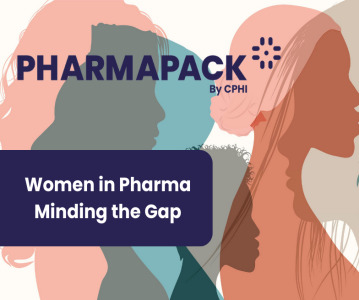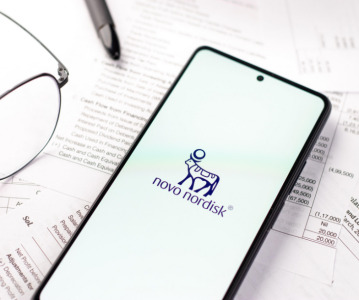Tipping the scales - Aduhelm’s hefty price under the spotlight

Biogen’s Alzheimer’s drug Aduhelm has recently secured FDA approval to much fanfare. But do the benefits of the treatment justify the weighty $56,000 per year price tag?
When it comes to the treatment of Alzheimer’s disease, up until now the options have been severely limited. At least 50 million people worldwide are believed to be living with this fatal neurodegenerative brain disease or other dementias, with an overall economic impact of over US$1 trillion.
The condition is characterised by progressive accumulation of beta-amyloid protein plaques and neurofibrillary tangles which damage neurons, leading to the decline of cognitive and physical functioning. Symptoms include impairment of memory, language and visuospatial function which eventually lead to the need for around-the-clock care. The average life expectancy of Alzheimer’s patients is four to eight years while the emotional and financial strain on caregivers – in most cases unpaid family members and friends – accumulates rapidly over this period.
So the US Food and Drug Administration’s approval of Biogen and Eisai’s Aduhelm (aducanumab) on June 7th was on the face of it fantastic news for the Alzheimer’s community. This human monoclonal antibody, which is administered via an intravenous (IV) infusion every four weeks, stimulates the immune system to target and eliminate beta-amyloid plaques in the brain.
It should be noted that the decision was made not without controversy; three members of the FDA’s advisory panel immediately resigned after the decision was made.
“We believe this first-in-class medicine will transform the treatment of people living with Alzheimer’s disease and spark continuous innovation in the years to come,” Biogen chief executive Michel Vounatsos proclaimed after the approval was sealed.
The biotech had spent years developing the treatment, which looked at one stage in late 2019 like joining the industry’s long list of investigational drug failures after disappointing and conflicting results in two Phase 3 clinical trials (ENGAGE and EMERGE).
The FDA approval sent Biogen stocks soaring as investors bought into the potential for it to become a blockbuster generating billions of dollars in annual sales. This was likely in no small part to Aduhelm being approved not just to treat patients afflicted with early onset of the disease but all Alzheimer’s patients.
Based on patients with mild dementia symptoms, Biogen has estimated the target population for Aduhelm at around 1-2 million people, but the FDA decision could technically increase it to a huge 5.8 million, the number of adults aged 65 and over in the US with Alzheimer’s.
The drug does not come cheap. Biogen has set the price at US$56,000 per year, which came way above analysts’ expectations. In a research note, analyst Brian Abrahams at RBC Capital Markets described Biogen’s price tag as “far above where we believe most investors had speculated,” adding that this type of pricing is more in line with specialty medications for diseases that affect hundreds of thousands of patients per year, rather than common diseases like Alzheimer’s.
Cost-benefit analysis
The high price has stimulated further close examination of where Aduhelm stands on the cost-benefit axis.
In its revised evidence report for Aduhelm, the independent non-profit research group, the Institute for Clinical and Economic Review (ICER), confirmed that in both the trials and at all doses, the drug effectively removed beta-amyloid.
According to the ICER report, while the EMERGE study did reveal a possible positive treatment effect, “a minimal clinically important difference in Clinical Dementia Rating Scale has not been clearly defined.”
“Furthermore, there is disagreement about whether the degree of improvement seen in EMERGE is clinically important, and the relationship between clearance of beta-amyloid in the brain and clinical improvement has yet to be conclusively demonstrated, with negative results from more than 20 other trials of anti-amyloid drugs,” the report reads.
Calculating the base-case cost-effectiveness of Aduhelm from both a healthcare system and a modified societal perspective basis, ICER estimated base-case annual prices in a range of US$2,950 to $8,360.
Put simply, that estimates the value of the drug at no more than 14.9% of Biogen’s annual list price.
“If blended efficacy results are used from the Phase 3 trials, our base-case analyses suggest that proposed pricing for aducanumab as has been stated by the manufacturer would not be in alignment with its clinical benefits,” ICER concluded.
The cost to Medicare and patients
How much Aduhelm will ultimately cost the US health insurance programme, Medicare, is still anyone’s guess. The variables are numerous; besides the prohibitive price, patients interested in taking the treatment will undoubtedly weigh up whether it is worth the not insignificant safety risks and may be swayed by the argument that it is still unclear whether it does actually slow down the progression of Alzheimer’s.
According to US non-profit organisation, the Kaiser Family Foundation (KFF), “it is hard to know exactly how many Medicare beneficiaries will take Aduhelm, but even a conservative estimate would lead to a substantial increase in Medicare spending.”
The KFF estimates that if just one-quarter of the near 2 million Medicare beneficiaries of currently-available Alzheimer’s treatments are prescribed Aduhelm (around 500,000), and Medicare initially pays 103% of the wholesale price – the standard practice for drugs where an average sales price is not yet available – total spending on the drug would amount to nearly $29 billion.
Putting this into context, KFF says that total Medicare spending for all so-called Part B drugs, which are administered by healthcare providers or at a dialysis facility as well as a limited number of outpatient prescription drugs, was $37 billion in 2019.
Patients with Medicare coverage taking Aduhelm could also face substantial out-of-pocket costs, both for the drug itself and the related medical services such as magnetic resonance imaging (MRI) scans before and during treatment.
So it appears that amid the hype of being the first new Alzheimer’s drug to secure FDA approval for 20 years, Aduhelm will remain under a critical lens for the foreseeable future. Much will depend on whether Biogen can ride out the flak generated by its eye-catching price tag, the controversy over its approval and the negative appraisal of its cost-benefits by independent experts.
Related News
-
News Pharmapack Awards 2024 Patient-Centric Design Award Winner – Dr Ferrer BioPharma
The 2024 Pharmapack Awards celebrated the best in innovation and design for the pharmaceutical packaging and drug delivery industry on January 24, 2024. -
News Women in Pharma: Minding the Gap at Pharmapack 2024
2024 marks the first year Pharmapack will host a Diversity track dedicated to bridging the gap within the pharmaceutical packaging and drug delivery sector. The track includes a panel discussion on 'Enabling Diversity in the Workplace,' focused... -
News Pharmapack Awards 2024 - Celebrating Packaging and Drug Delivery Innovation
The 2024 Pharmapack Innovation Awards ceremony celebrated the best in pharmaceutical packaging and drug delivery innovation at all levels. The awards were held on January 24, 2024 at the Paris Expo Porte de Versailles. -
News 2024 Pharma Industry Trends Outlook: Collaboration, Market Maturity, and Digital Futures
The annual CPHI Online 2024 Pharma Trends Outlook, in partnership with Arvato Systems, identifies 12 key industry trends shaping the life sciences industry in the coming year. -
News New Novo Nordisk AI hub for drug discovery to open in London, UK
Danish pharmaceutical giant Novo Nordisk will be opening an AI-based research facility in the heart of London to advance drug discovery operations. -
News BioNTech to begin mRNA vaccine manufacturing in Rwanda by 2025
German biotechnology company BioNTech has stated their intentions to begin production at their mRNA vaccine factory in Rwanda by 2025, which will mark the first foreign mRNA vaccine manufacturing site on the continent of Africa. -
News Women in Pharma: Looking back on 2023 and moving forward to 2024
In this monthly series, we interview women from across the pharmaceutical industry and supply chain to discuss the importance of gender diversity in healthcare, the workplace, and beyond. -
News CPHI Barcelona 2023: Partnering for Success – Managing Outsourcing Relationships to Optimise Manufacturing Operations
During CPHI Barcelona 2023, insightful content sessions offered attendees the chance to explore trending topics with expert speakers and panellists. Here, we summarise what the pharma industry and supply chain are talking about the most.
Position your company at the heart of the global Pharma industry with a CPHI Online membership
-
Your products and solutions visible to thousands of visitors within the largest Pharma marketplace
-
Generate high-quality, engaged leads for your business, all year round
-
Promote your business as the industry’s thought-leader by hosting your reports, brochures and videos within your profile
-
Your company’s profile boosted at all participating CPHI events
-
An easy-to-use platform with a detailed dashboard showing your leads and performance







